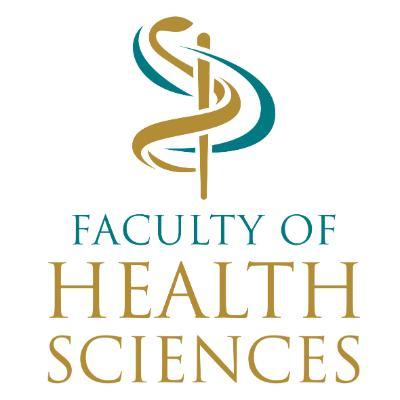Medical mycologist Nelesh Govender was elected as an American Academy of Microbiology fellow
- FHS Communications
Professor Nelesh Govender in the Wits School of Pathology was elected as a fellow of the American Academy of Microbiology for 2024.
One of 65 awardees, Govender’s prolific scientific achievements and original contributions to advance microbiology led to his selection.
Govender’s expertise lies in clinical microbiology. In particular, he has focused on life-threatening fungal diseases which account for about half of all deaths in people living with HIV. Fungal diseases such as candidaemia and aspergillosis also contribute to the deaths of critically ill people in hospitals across Africa.
Govender and his team discovered two novel thermally-dimorphic fungal pathogens (Emergomyces africanus, Blastomyces emzantsi) both causing deadly infections, and he led the implementation and evaluation of a national cryptococcal disease screen-and-treat intervention for people living with HIV.
“I’m incredibly honoured to join the Academy as a fellow, being one of a few South Africans ever to be elected. However, many excellent microbiologists across the African continent have made important contributions to health in low-resource environments and deserve the same recognition. I’ve been fortunate to work in an institute [the NICD, a division of the NHLS] that has allowed me to build my career in academia alongside my work in clinical microbiology and public health,” he said.
Govender noted that despite the high morbidity and mortality rates in vulnerable people related to fungal diseases, the area is mostly neglected in medical research. These poor outcomes for people affected by fungal diseases are attributed to the limited availability of affordable diagnostic systems, poor access to antifungal medicines and insufficient research and innovation. Africa has a high burden of HIV and TB as well as serious fungal diseases which are associated with both HIV and TB, requiring fungal diagnoses and treatment to be incorporated into essential care packages.
Trained as a medical doctor and then a clinical microbiologist at Wits, Govender has worked at the intersection of pathology, public health and clinical trials. He co-leads the EFFECT phase III multicentre clinical trial to test whether two antifungal medicines would be better than one to pre-emptively treat early cryptococcal disease among people living with HIV in South Africa, Tanzania and Vietnam. Cryptococcosis is the most common form of meningitis in adults in southern Africa, accounting for 19% of AIDS deaths globally. Cryptococcal meningitis can be prevented by screening people for fungal antigen in their blood and pre-emptively treating those with a positive screening test.
Govender also co-leads the multi-country IMPRINT global health research group studying serious fungal infections causing AIDS-related deaths. Meanwhile, his recently-completed Baby GERMS-SA surveillance project has documented the national burden of life-threatening neonatal infections in South Africa. This work is being expanded to detect infection outbreaks in newborn hospital units using epidemiological and pathogen genomic data.
“We have an exceptional core of scientists and clinicians in Africa conducting high-quality research on the major infectious diseases such as HIV, TB, malaria, respiratory and diarrhoeal diseases. But they are too few and face many challenges, not least a lack of resources to conduct and publish globally-competitive research and to train the next generation of scientists. There are even fewer researchers working on fungal diseases,” he said.
Govender is an Honorary Professor at the University of Cape Town, St George’s University of London and the University of Exeter. He heads the Centre for Healthcare-Associated Infections, Antimicrobial Resistance and Mycoses at the National Institute for Communicable Diseases. He is a current member of a WHO committee drafting a blueprint policy document to shape the future landscape of interventions for fungal infections and antifungal resistance.
“Academy Fellowship signifies a distinguished accolade, and I am delighted to extend my congratulations and warm welcome to Professor Govender as a member of the 2024 Cohort. Fellows are an outstanding assembly of scientists whose contributions have propelled discipline and whose knowledge benefits both the scientific community and broader society,” said Vanessa Sperandio, PhD, Chair of the Academy of Governors.
The American Society for Microbiology (ASM) is one of the largest professional societies dedicated to the life sciences and comprises 36,000 scientists and health practitioners. ASM's mission is to promote and advance the microbial sciences. ASM advances the microbial sciences through conferences, publications, certifications, educational opportunities and advocacy efforts. It enhances laboratory capacity around the globe through training and resources. It provides a network for scientists in academia, industry and clinical settings. Additionally, ASM promotes a deeper understanding of the microbial sciences to diverse audiences.


